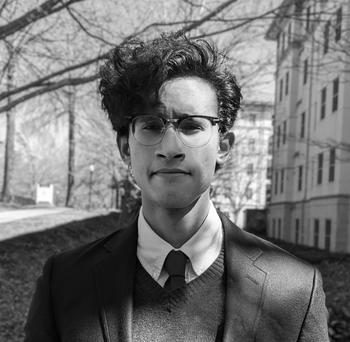‘Emory just feels so dark’: Students discuss faith at their Methodist university in wake of Asbury revival
On Feb. 8, a spiritual revival broke out at Asbury University, lasting two weeks.
Not all students at Christian universities, however, feel their schools are providing supportive, or even neutral, environments for Christians.
On Feb. 8, following a normal chapel service at Asbury University, a group of students remained in their school’s chapel to continue praying and singing. Worship and prayer then continued non-stop until Feb. 21. Over the course of the event, thousands of young people from across the country flocked to Asbury to join in the revival, with similar revivals cropping up at nearby Christian colleges.
Not all students at Christian universities, however, feel their schools are providing supportive, or even neutral, environments for Christians.
Campus Reform interviewed students and staff at Emory University, an elite private Methodist institution in Atlanta, Georgia, on their experience practicing faith on campus as well on their thoughts regarding the Asbury revival.
[RELATED: Asbury University students have sparked Christian revivals nationwide]
Hope Jackson, a non-denominational senior at the college, told Campus Reform that “our generation is starved for spirituality” when asked what compelled so many people to attend the Asbury revival.
“While our generation needs a satisfying relationship with our Creator, we’re generally being fed a spiritual diet that is adapting our palettes to hate the taste of truth,” she went on to say. “I think we as young Christians need to be more open and genuine with our faith, and especially our struggles, to our peers.”
She went on to criticize the university for not living up to its Methodist roots.
“In nearly every opportunity I’ve witnessed for Emory to put its Methodist affiliation to practice, be it in the classroom, at events, or in conversations among students, it has fallen short,” Jackson stated. She cited the university’s support for Planned Parenthood, drag shows held in the college’s church, and the college of theology “promoting the church of Satan” as examples of this.
Jackson didn’t think something like what occurred at Asbury could happen at Emory. “I wish it would,” she lamented, “but Emory just feels so dark and far from God.”
Charles Schnell, a Lutheran senior, echoed Jackson’s sentiment that Emory has strayed from its Christian identity.
“On the one hand, through its actions and officially confessed beliefs, Emory has proven itself to be opposed to the doctrines of Christ in toto,” Schnell emphasized. “On the other hand, given the current state of United Methodism, perhaps ‘Methodist’ is quite apt of a label.”
The United Methodist Church recently moved to affirm homosexual marriage, prompting many individual churches to disaffiliate.
Schnell agreed with Jackson on the point that something resembling the Asbury revival could not have happened at Emory, stating that “most students would be apathetic.”
Breaking with Jackson, Schnell had some criticisms of the Asbury revival. Though he believes there is something “attractive” about the revival, he qualifies that statement by saying that “the emphasis on emotions” is prioritized “over and above God’s Word and what Christ has already done for us.”
“This is not at all to say there aren’t sincere and genuine Christians at the revival,” he continued, “rather, I think their focus is on themselves instead of Christ, worshiping by their own inventions rather than looking to Scripture and historical practices for guidance.” He contrasted their worship with how Christians have traditionally worshipped liturgically for centuries.
“The Asbury Revival is greatly spurred by a longing for spirituality among Gen. Z,” Schnell went on. “It is tragic how the lack of faith truly wreaks havoc on souls and consciences.”
[RELATED: ’I have never seen or experienced anything like this’: a religious revival at Texas A&M]
Some students were more optimistic about the state of faith among their generational peers.
A Catholic student, who has requested to remain anonymous, told Campus Reform that, though “our society has a God-sized hole in its heart”, the “recent events in Asbury represent a deviation from the worsening secularization within our already nonreligious society.”
The student went on to explain that “Millennial[s] and Generation Z are the most irreligious generations ever, so it’s very inspiring to see my fellow Zoomers spearhead this attempt to reverse this trend.”
“I pray this is the beginning of more subsequent large-scale revivals - maybe I will live to see a 21st Century Great Revival.”
Campus Reform contacted Asbury University for comment; this article will be updated accordingly.

